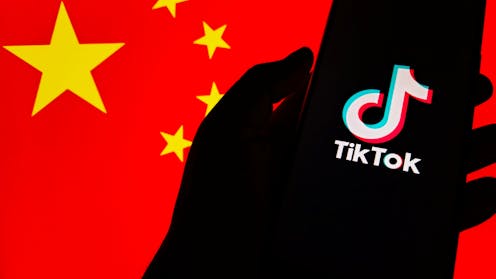The battle for TikTok is at the forefront of a deeper geopolitical trend
- Written by Shweta Singh, Assistant Professor, Information Systems and Management, Warwick Business School, University of Warwick

After years of mounting scrutiny over TikTok’s data practices, in 2024 the Chinese video platform was threatened with a forced sale in the US or a nationwide ban[1]. With the deadline looming on June 19, US–China tech rivalry has entered a new and more aggressive phase. TikTok vowed to fight forced divestment, claiming it would “trample” free speech[2].
But what started as a controversy over data privacy now has global implications. This conflict is about more than just an app. It represents a shift in the balance of digital power — one that could redefine how nations view national security, economic sovereignty and the internet itself.
In light of my research[3] on AI bias, algorithmic fairness, and the societal impact of digital platforms and my experience advising government on AI regulation and digital ethics[4], I see TikTok as the flashpoint of a broader, more dangerous trend. Digital spaces are becoming battlefronts for geopolitical influence.
TikTok has evolved from a social media app to – in the eyes of some policymakers – a digital weapon. Its massive global following has made it a cultural juggernaut. But this viral success has also made it a prime target in the escalating US-China tech war.
Rather than relying on bans and trade wars, what is needed is robust, cross-border frameworks that prioritise transparency, data protection, algorithmic accountability and the mitigation of online harms.
Concerns about harassment, disinformation, addictive design and algorithms that amplify toxic content are not unique to TikTok. US legislation such as the Kids Online Safety Act[14] and the proposed Platform Accountability and Transparency Act[15] signal growing concern. But these efforts remain piecemeal.
The EU’s Digital Services Act[16] is a welcome model for accountability. But global coordination is now essential. Without it, there is the risk of further fragmentation of the internet (what has been called the “splinternet”[17] — where access is determined by geopolitics rather than universal principles).
The digital world has long been dominated by a handful of powerful corporations. Now it is increasingly shaped by state rivalries. The battle over TikTok is a harbinger of deeper tensions around how data, influence and trust are distributed online.
The real question now is not whether TikTok survives, but whether nations can craft a digital future that prioritises democratic values, cross-border collaboration and the public good. This isn’t just about national security or free speech. It’s a defining moment in the battle for the future of the internet.
References
- ^ nationwide ban (www.bbc.co.uk)
- ^ “trample” free speech (www.bbc.co.uk)
- ^ my research (www.sciencedirect.com)
- ^ AI regulation and digital ethics (post.parliament.uk)
- ^ Sign up to our daily newsletter (theconversation.com)
- ^ its owner, ByteDance (www.bytedance.com)
- ^ Cambridge Analytica scandal (www.bbc.co.uk)
- ^ set to extend (www.msn.com)
- ^ Huawei and Nvidia (www.theguardian.com)
- ^ TikTok’s defenders (www.forbes.com)
- ^ faced criticism (www.bbc.co.uk)
- ^ social harm (committees.parliament.uk)
- ^ EPA-EFE/JIM LO SCALZO / POOL (epaimages.com)
- ^ Kids Online Safety Act (www.congress.gov)
- ^ Platform Accountability and Transparency Act (www.congress.gov)
- ^ Digital Services Act (commission.europa.eu)
- ^ “splinternet” (www.internetsociety.org)







